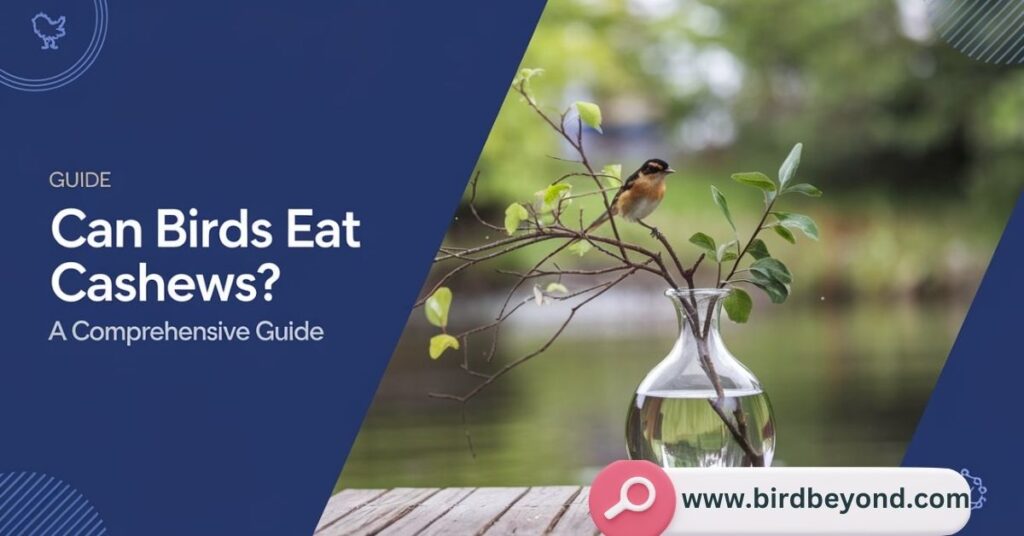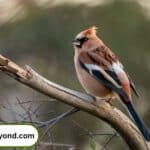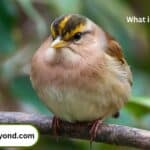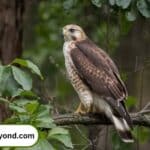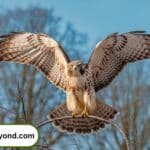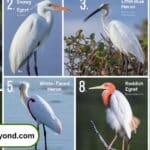Bird enthusiasts and pet owners alike often wonder, Can birds eat cashews? Nuts are commonly considered nutritious snacks for humans, so it’s natural to question if birds can enjoy the same treats. While some birds can safely eat cashews, it’s important to understand the risks, benefits, and feeding guidelines to ensure their health and safety. In this comprehensive guide, we’ll explore which birds can eat cashews, the safest forms to offer, and how to incorporate this nut into their diet responsibly.
Can Birds Eat Cashews?
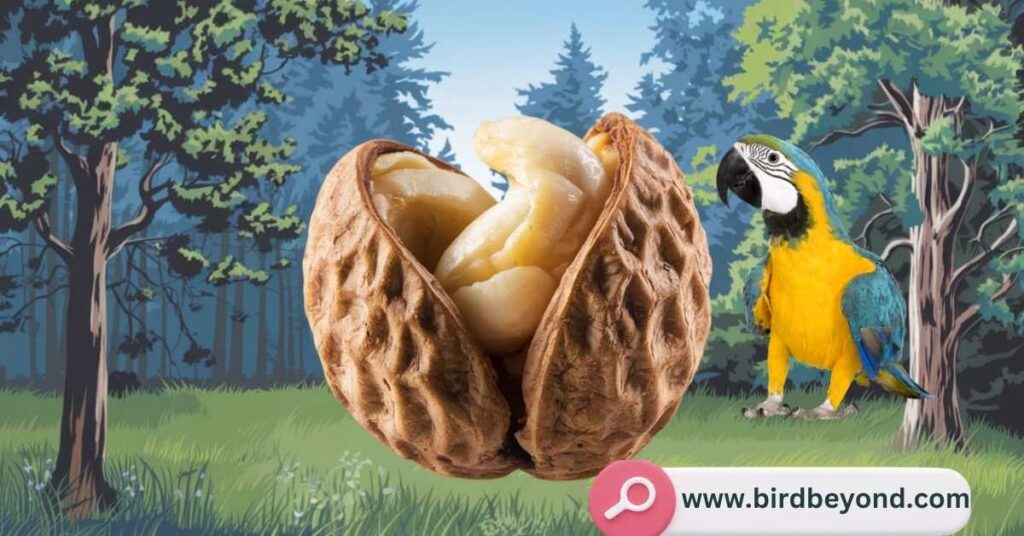
Nutritional Overview of Cashews
Cashews are packed with essential nutrients, making them a tempting option for bird feeders. They contain high levels of healthy fats, protein, and a variety of vitamins and minerals like magnesium, phosphorus, and zinc. Cashews are often compared to other nut varieties such as almonds and walnuts, which are also high in beneficial nutrients.
Quick look at the nutritional profile of cashews:
| Nutrient | Amount (per 1 oz serving) |
|---|---|
| Calories | 157 |
| Fat | 12 g |
| Protein | 5 g |
| Carbohydrates | 9 g |
| Fiber | 1 g |
| Magnesium | 83 mg |
| Phosphorus | 168 mg |
| Zinc | 1.6 mg |
These nutrients are essential for birds’ health, contributing to strong feathers, a robust immune system, and overall vitality. However, the high fat content in cashews raises a concern, especially when fed in large amounts.
Are Cashews Safe for Birds?
In general, cashews can be safe for birds if offered in moderation. Like many nuts, they are nutrient-dense, but they also come with risks, particularly due to their high-fat content. Parrots, jays, and other large birds can process fats more effectively than smaller species, but over consumption can lead to health issues such as obesity and liver problems.
Tip: Always feed unsalted cashews and avoid flavored or roasted varieties that contain oils, seasonings, or preservatives, as these can be harmful.
Which Birds Can Eat Cashews?
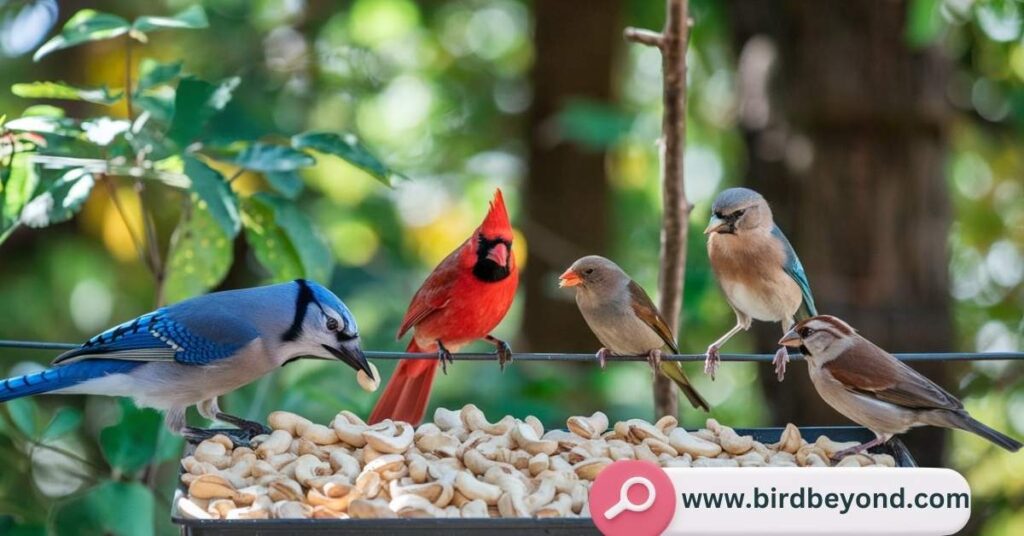
Parrots and Other Large Birds
Parrots and other large birds, including macaws, cockatoos, and jays, can eat cashews as part of a varied diet. Their ability to digest nuts is stronger than that of smaller birds due to their robust digestive systems. Cashews provide a good source of protein and healthy fats, which help maintain their energy levels and promote feather health.
Feeding guidelines for large birds:
- Offer 1-2 cashews per day as a treat.
- Make sure the cashews are unsalted and raw or lightly roasted without added oils.
- Break the nuts into smaller pieces to make them easier for the bird to eat.
Small Birds: Finches, Canaries, Budgies
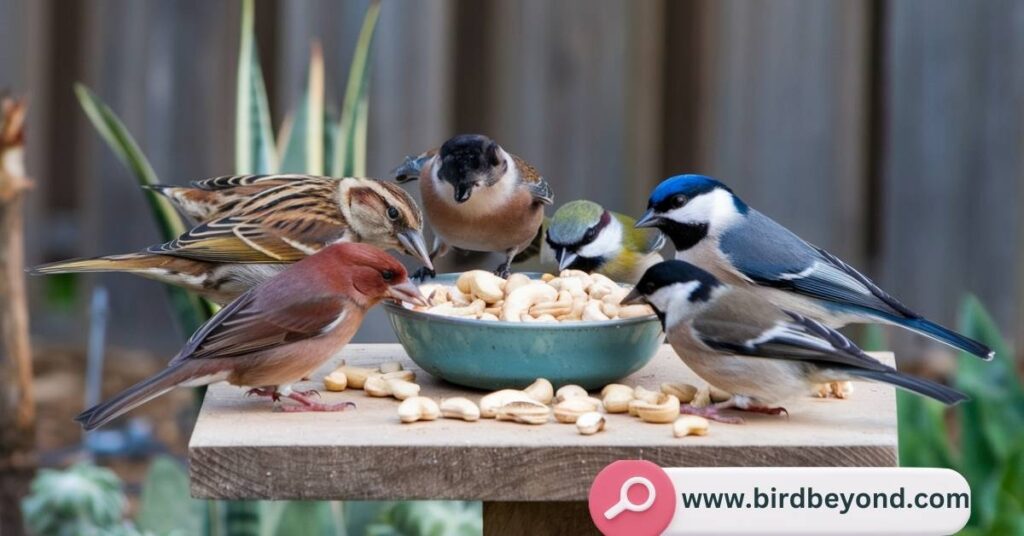
While cashews can be a treat for large birds, small birds like finches, canaries, and budgies should not consume them regularly. Their digestive systems are more delicate, and cashews can be too high in fat for them. Small birds can easily over consume cashews, which may lead to obesity and other health problems.
For these species, it’s best to stick to bird-friendly foods such as millet, seeds, and small amounts of fruits or vegetables. If you do choose to offer cashews to small birds, only give them tiny, finely chopped pieces and do so infrequently.
Wild Birds: Jays, Woodpeckers, and More
In the wild, birds such as jays, woodpeckers, titmice, nuthatches, and cardinals are known to enjoy nuts, including cashews, as part of their natural diet. These birds frequently visit backyard bird feeders, where cashews can be offered as an occasional treat.
Backyard birdwatching tip: Jays and woodpeckers are more likely to visit your bird feeder if you provide high-energy snacks like cashews. However, remember to offer these nuts in moderation, along with other natural bird food options like sunflower seeds or peanuts.
| Bird Species | Can Eat Cashews? |
|---|---|
| Parrots | Yes |
| Macaws | Yes |
| Jays | Yes |
| Woodpeckers | Yes |
| Finches | Rarely |
| Canaries | Rarely |
| Budgies | Rarely |
| Cardinals | Yes |
Forms of Cashews Birds Should Avoid
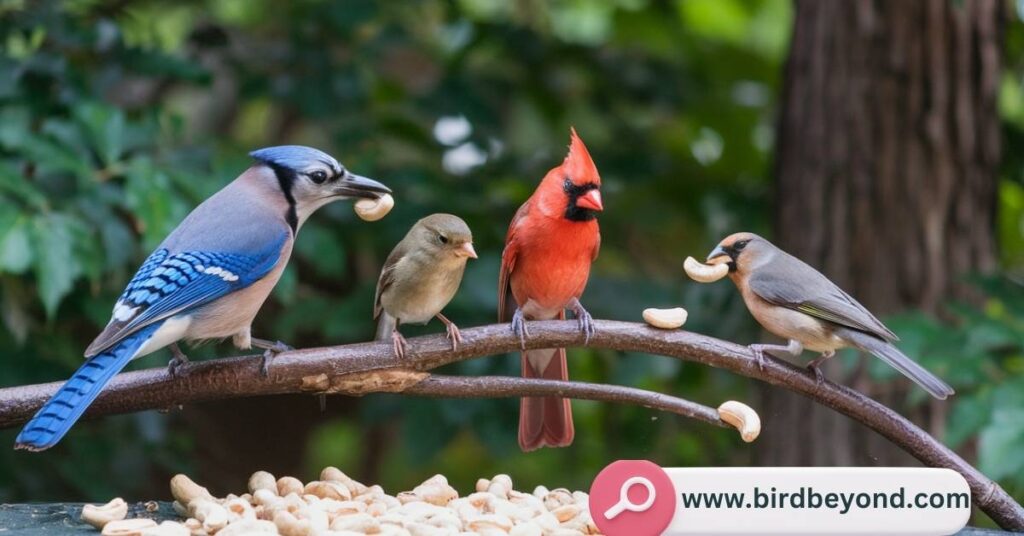
Salted and Seasoned Cashews
Many store-bought cashews are salted or seasoned, and while this enhances the flavor for humans, it can be dangerous for birds. Excess salt can lead to dehydration and kidney problems in birds, especially smaller species that are more sensitive to high sodium levels.
Sweetened or Flavored Cashews
Cashews that are coated in sugar, honey, or artificial flavorings should be avoided at all costs. Birds have a hard time processing sugars, and sweetened cashews can disrupt their metabolism, leading to weight gain and diabetes.
Cashews with Oils or Added Fats
Roasted cashews are often cooked with added oils, which increases their fat content. While birds do need fats for energy, too much fat can cause long-term health issues. Always opt for raw or dry-roasted cashews without oils when feeding your birds.
How to Safely Feed Cashews to Birds
Serving Size and Frequency
When feeding cashews to your bird, moderation is key. Large birds can tolerate small amounts of cashews more easily than small birds. Here are some feeding guidelines:
- Large birds (parrots, jays): 1-2 cashews per day, served as a treat.
- Small birds (finches, canaries): Only tiny, finely chopped pieces, offered rarely.
- Wild birds: Place a few unsalted, raw cashews in a bird feeder once a week for variety.
How to Prepare Cashews
Preparing cashews properly is essential for ensuring your bird’s safety. Follow these tips:
- Chop the cashews into small, manageable pieces for smaller birds to prevent choking hazards.
- Soak or grind cashews to make them easier to digest for older birds or those with weak beaks.
- Always ensure the cashews are unsalted and free of any added flavors or preservatives.
Cashew Alternatives for Birds
If you’re looking for other nut varieties that are safe for birds, consider these options:
- Almonds (unsalted, raw)
- Walnuts
- Pine nuts
- Sunflower seeds
These alternatives provide similar nutritional benefits and are often easier to find in bird-safe forms.
Risks and Considerations
Allergic Reactions
While rare, birds can experience allergic reactions to certain foods, including cashews. Symptoms of an allergic reaction might include lethargy, vomiting, or difficulty breathing. If your bird shows any of these signs, consult an avian vet immediately.
Choking Hazards
Cashews can pose a choking risk, particularly for small birds. Always break cashews into small pieces and monitor your bird while they’re eating.
Long-Term Health Effects
Feeding cashews too frequently can lead to obesity, liver disease, and other health issues. Birds should have a balanced diet consisting of seeds, fruits, vegetables, and bird-friendly foods, with cashews being an occasional treat.
Conclusion
In summary, yes, birds can eat cashews, but only in moderation and under certain conditions. Large birds like parrots and jays can safely enjoy cashews as part of their diet, while smaller birds should be offered these nuts sparingly. Always opt for unsalted, raw, or lightly roasted cashews without any added oils or flavors to ensure the safety of your feathered friends.
Whether you’re feeding wild birds in your backyard or offering a treat to your pet parrot, cashews can be a nutritious snack when given with care. Just remember, variety is key to a bird’s diet, and other natural bird food options should always be part of their feeding routine.
FAQs
Can baby birds eat cashews?
No, baby birds should not be fed cashews. Their digestive systems are not developed enough to handle such hard foods, and there’s a significant risk of choking. Instead, offer soft foods like soaked seeds, mashed fruits, or bird-safe formula for proper nutrition.
How often can I give my parrot cashews?
Parrots can have cashews occasionally, no more than 1-2 pieces per day. It’s important to ensure that cashews make up a small part of a varied diet that includes seeds, fruits, vegetables, and other bird-safe foods. Moderation is key to avoiding health issues related to high fat content.
What should I do if my bird accidentally eats a salted cashew?
If your bird consumes a salted cashew, ensure it has access to plenty of fresh water. Salt can be harmful to birds, leading to dehydration or kidney problems. Monitor your bird closely for any signs of distress such as lethargy, and contact an avian veterinarian if you notice any unusual symptoms.
Are cashew shells dangerous for birds?
Yes, cashew shells contain toxic substances and should never be offered to birds. Cashews sold for human consumption are already shelled, but if you’re preparing them at home, ensure that all shells are removed before feeding them to your bird.
What are the best cashew alternatives for birds?
Bird-safe nuts like almonds, walnuts, pine nuts, and unsalted sunflower seeds are excellent alternatives to cashews. These nuts offer similar nutritional benefits, such as healthy fats and proteins, without some of the risks associated with overfeeding cashews.

William Henry is a distinguished blogger with a flair for avian storytelling. With a wealth of experience, he delivers captivating insights and expert knowledge to Bird Beyond. William’s passion for birds and his engaging writing style make him a standout voice in the birdwatching community, offering readers both valuable information and delightful narratives.

